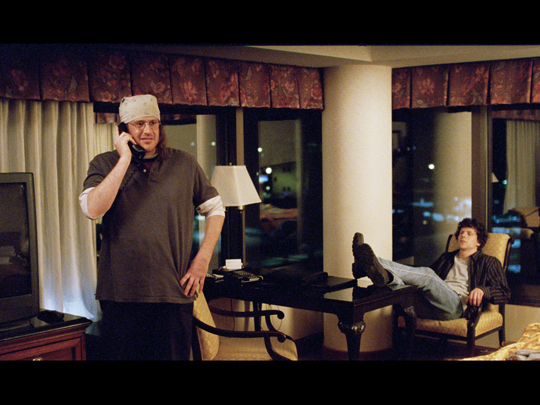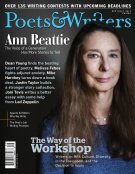While widely considered one of the most iconic and inventive writers of the twentieth century, the late David Foster Wallace had never been the subject of a major motion picture—that is, not until the release of The End of the Tour (endofthetour-movie.com), which premiered at the Sundance Film Festival last January and was released in theaters nationwide on July 31. Directed by James Ponsoldt and written by Pulitzer Prize–winning playwright Donald Margulies, the film is an adaptation of author David Lipsky’s Although of Course You End Up Becoming Yourself: A Road Trip With David Foster Wallace (Broadway Books, 2010), which was published two years after Wallace took his own life. The book chronicles Lipsky and Wallace’s five-day road trip through the Midwest during the winter of 1996, when Wallace was on tour for his magnum opus, Infinite Jest, which was released that year by Little, Brown. Lipsky’s book includes transcripts of the two authors’ conversations about art, life, and writing. Actor Jesse Eisenberg, known for playing Mark Zuckerberg in The Social Network and who is a writer himself (his debut short story collection, Bream Gives Me Hiccups, is out this month from Grove Press), plays Lipsky, and actor Jason Segel plays Wallace. When casting was announced in December 2013, a social-media storm ensued, with many people enraged that Segel—who is known for writing and acting in comedies such as Forgetting Sarah Marshall and The Muppets, and for his role in the television series How I Met Your Mother—would play the literary giant. Segel himself admits the role was a leap, and has said that he spent months listening to tapes of Wallace’s interviews and even formed a book club of “three really great book dorks” to read Infinite Jest. The work seems to have paid off: Since its release, the movie has been widely praised, as has Segel’s performance. David Rooney of the Hollywood Reporter wrote that it was Segel’s “best work since Freaks and Geeks, devastating strictly on its own quiet terms,” and called the movie “an exquisitely elegiac film.”










